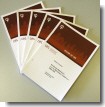| Oficina do CES | ||||
|
|
||||
|
|
316 Data de publicação: Outubro de 2008 |
|||
Resumo: For more than two decades, Sudan experienced a violent conflict, opposing the Northern Arab Muslim dictatorial government and the Southern Christian and Animist rebels. Often considered as an example of the ‘clash of civilisations’, this conflict is actually characterised by deep political and socio-economic inequalities. For the largest country in Africa, the promises of peace came with the Comprehensive Peace Agreement signed on 9 January 2005. But peace in Sudan is still uncertain, challenged by obstacles to the implementation of the Agreement, by genocidal violence in Darfur and an increasing instability in the East. Through a rigorous analysis of the complexities of war and peace in Sudan, this paper aims to analyse the recent developments of the peace process and the challenges posed to the prospects for a more peaceful and prosperous future in the country. |
||||
